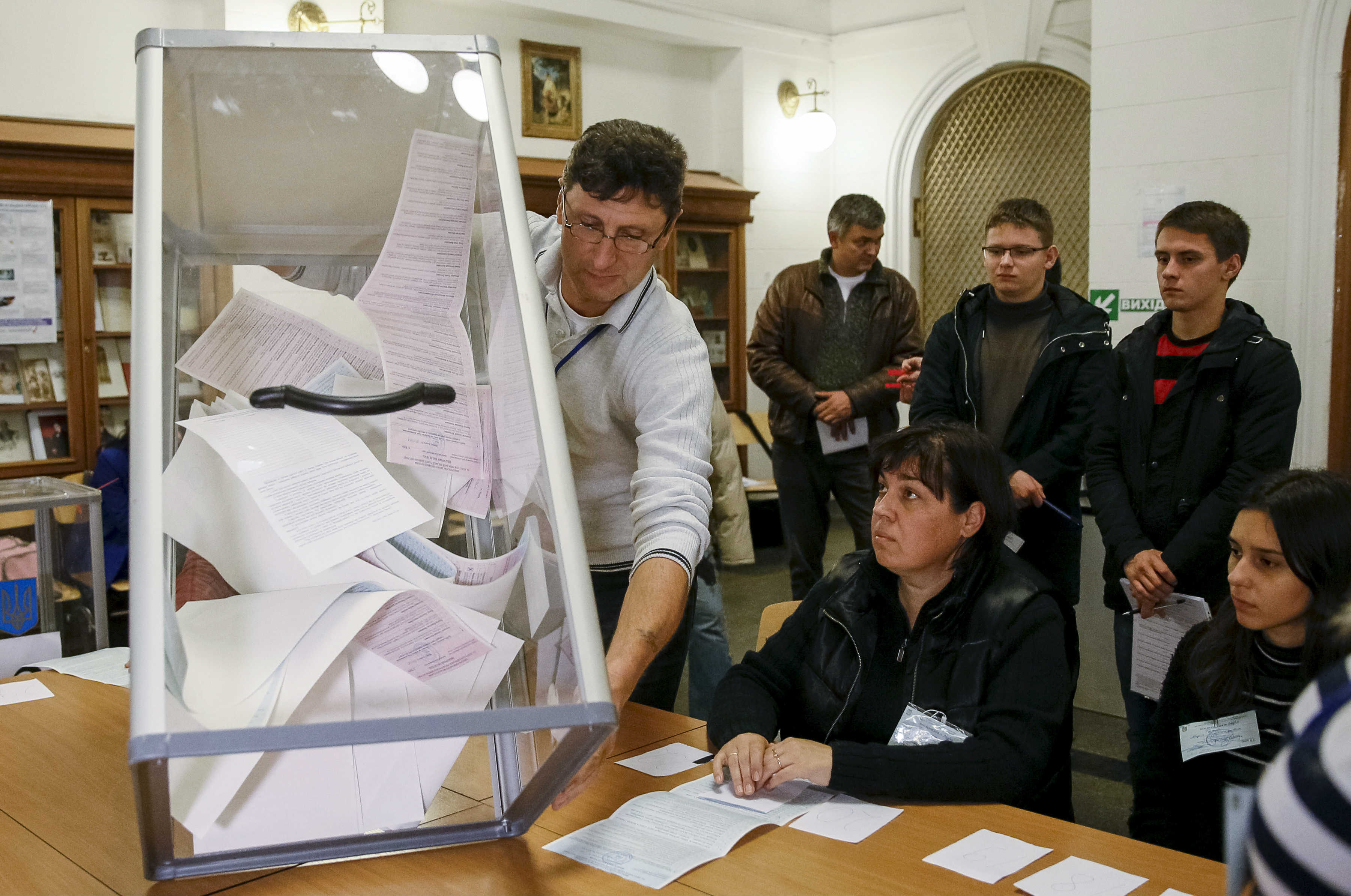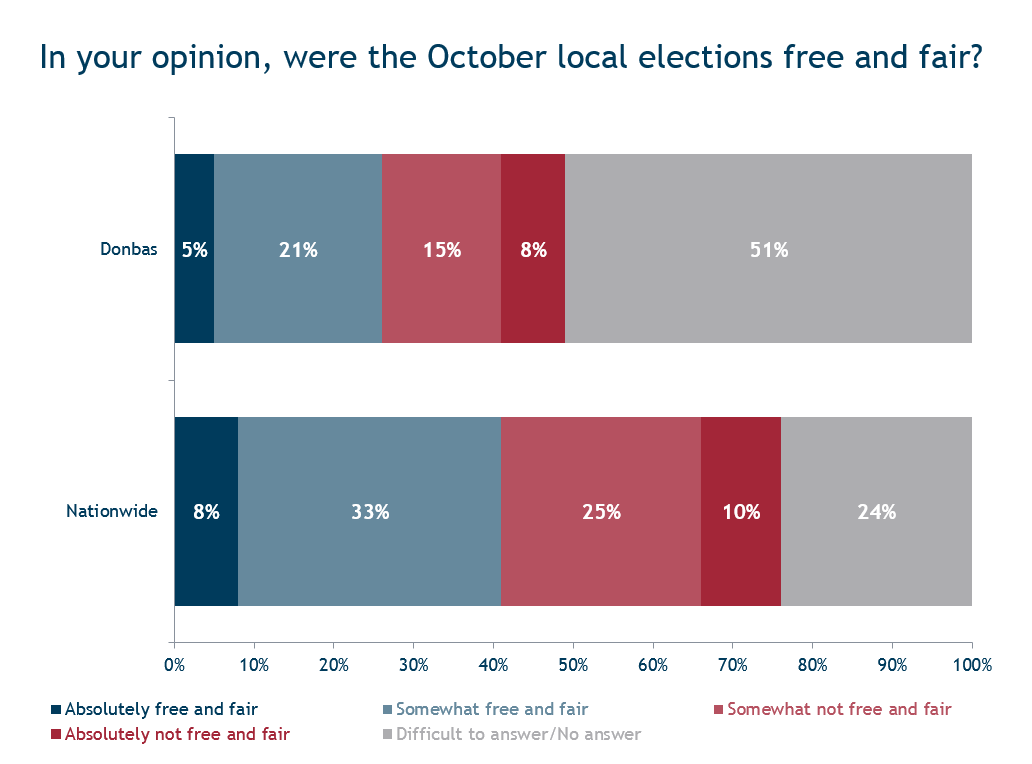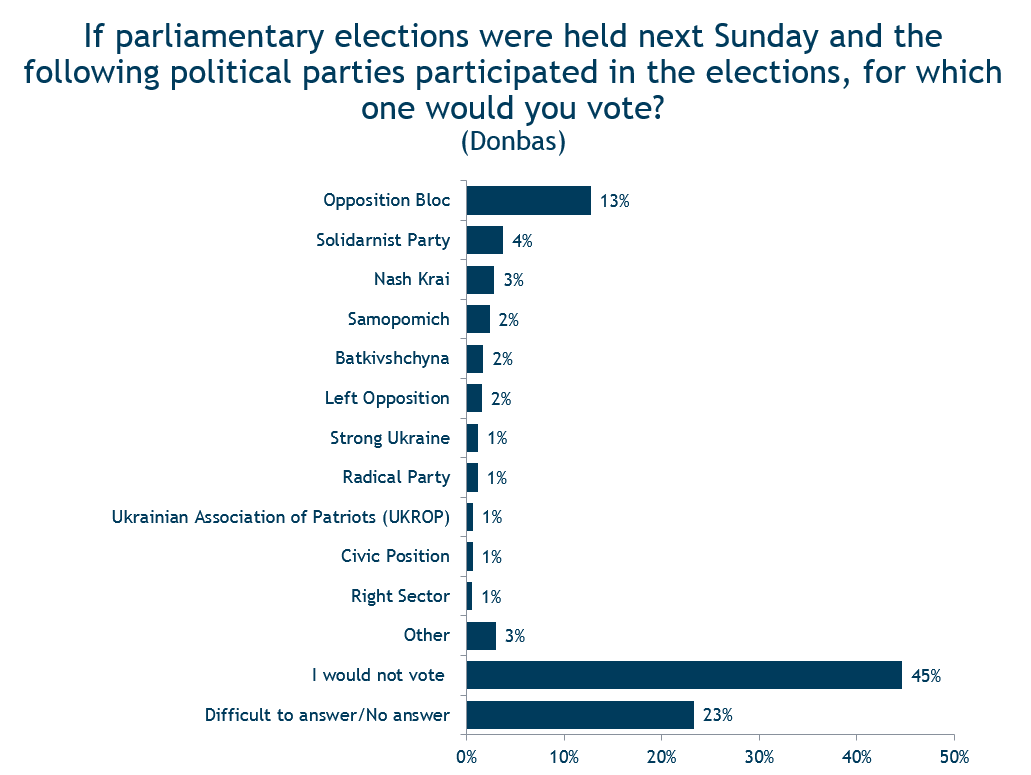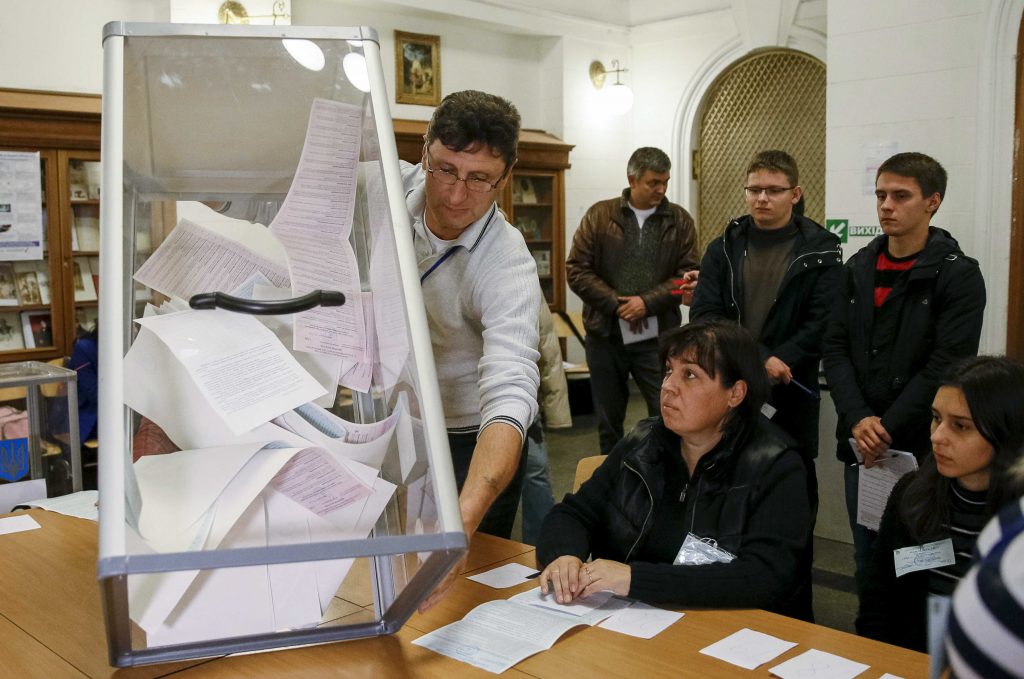 Ukrainians elected more than 10,000 mayors and 160,000 city councilmembers in local elections on October 25. It was the third nationwide election since the Euromaidan Revolution. A new International Republican Institute (IRI) poll of the Ukrainian-controlled territories of the Donbas region (i.e., Donetsk and Luhansk oblasts) reveals that only 26 percent of respondents believe the local elections were free and fair—one of several indications that a continuing and growing disconnect has emerged between residents of the Donbas and the Kyiv government.
Ukrainians elected more than 10,000 mayors and 160,000 city councilmembers in local elections on October 25. It was the third nationwide election since the Euromaidan Revolution. A new International Republican Institute (IRI) poll of the Ukrainian-controlled territories of the Donbas region (i.e., Donetsk and Luhansk oblasts) reveals that only 26 percent of respondents believe the local elections were free and fair—one of several indications that a continuing and growing disconnect has emerged between residents of the Donbas and the Kyiv government.

This lack of trust in the fairness of the election process is largely due to procedural delays in elections in Mariupol and Krasnoarmeisk in Donetsk oblast, which stemmed from ballot printing issues. Local residents and political elites perceived the multiple-week delay as a Kyiv-driven attempt to buy time for national parties like Batkivschyna, Samopomich, and Bloc Petro Poroshenko to improve their standing. Regardless of the reason for the delay, it has undoubtedly contributed to high levels of mistrust.
Continuing the trend, when asked to evaluate the outcome of the local elections, only a quarter of Donbas residents indicated their satisfaction with the political parties elected from their communities to serve in their local councils. Although Donbas residents are overall against holding early parliamentary elections, in the event that such early elections were held, only 36 percent plan to vote. Similarly, when asked to evaluate their support for political parties, a troubling 68 percent stated that the question was either difficult to answer or that they would not vote altogether.

Donbas residents’ mistrust in the election process and national political parties indicates that Ukraine’s local elections failed to serve as a peaceful means of engaging voters in national political discourse. This frustration is partly evidenced by decreasing support for local business elites like Rinat Akhmetov, Borys Kolesnikov, and Oleksander Yefremov. With the region feeling increasingly disengaged and alienated from Kyiv, it is critical that a new generation of regional political parties emerge that taps into frustrations with local politics as usual and that supports a clean break with past corrupt practices and clan politics.
The international community should carefully monitor and support the emergence of parties like Nash Krai, the Agrarian Party of Ukraine, and Silya Liuday. Silya Liuday secured five seats on the Mariupol city council, which shows that local residents are willing to support young activists and politicians if they are seen to be from the community, and not representing outside interests. Similarly, the Agrarian Party of Ukraine, which surprised many by winning over 10 percent of municipal council seats in several regions, relied exclusively on local activists and small business owners supporting land, agricultural, and tax issues. Finally, the pro-Kyiv opposition party Nash Krai secured seats on numerous city councils and in mayoral races in the region. Although much weaker than the dominant Opposition Bloc, its voters support a united and sovereign Ukraine, EU membership, and progressive reforms.
Support for the grassroots structures of emerging political parties in the Donbas region may begin to mend the region’s trust deficit. Although the Opposition Bloc, the former Party of Regions, is still the most popular political party in southeastern Ukraine according to IRI’s data, the public’s growing frustration with the status quo would undoubtedly be eased with the emergence of alternative parties. Political party building will be critical, as will assistance to the parties’ newly elected councilmembers to enable them to effectively represent their communities and rebuild trust in the political process.
Michael Druckman is the International Republican Institute’s Country Director in Ukraine and Katie LaRoque is a Program Officer at the International Republican Institute who covers Ukraine.
Image: A member of a local electoral commission empties a ballot box after a regional election at a polling station in Kyiv, Ukraine, October 25, 2015. Local elections in Ukraine's port city of Mariupol were called off, prompting the ruling party of President Petro Poroshenko and the pro-Russian Opposition Party to blame each other for alleged irregularities in the vote. Credit: REUTERS/Gleb Garanich
